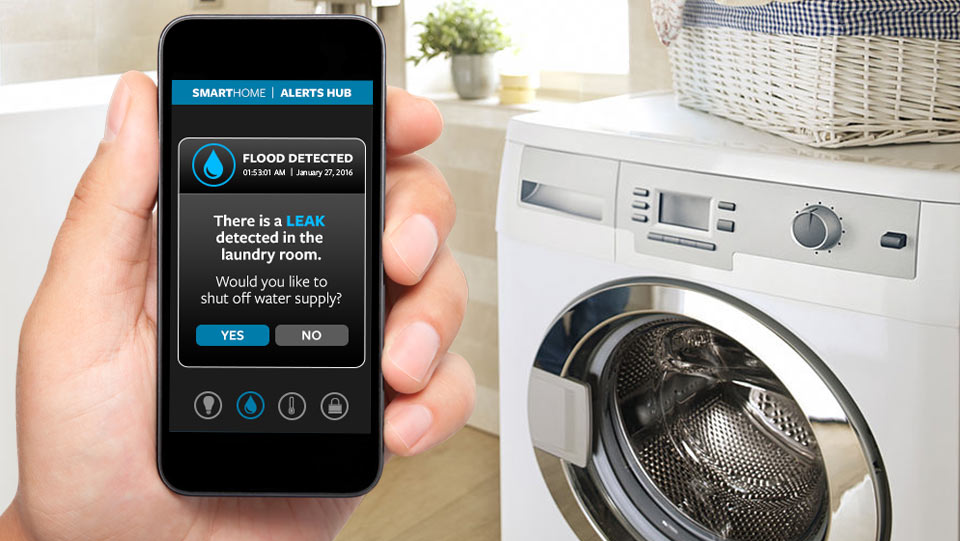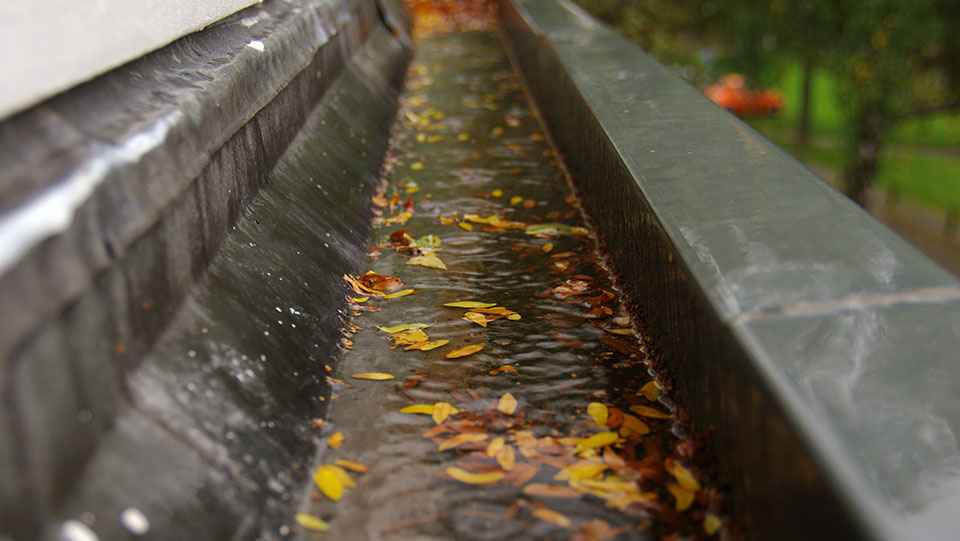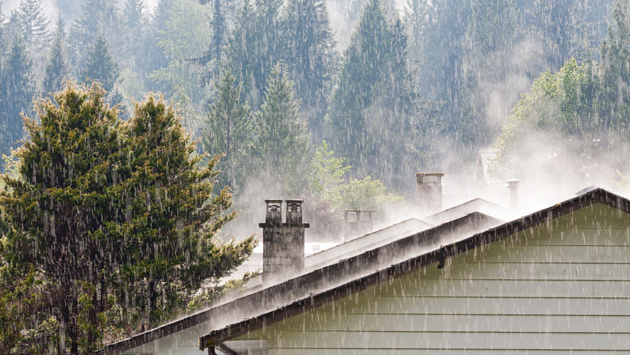How to Help Prevent Water Damage in Your Home

There are many ways to help protect your home from losses that occur when water finds its way outside of the appliances you rely on to run your household’s daily needs. For most of us, when we think about the causes of severe water damage to our homes, we think about extreme weather like a hurricane or torrential rains. But the unfortunate reality is that extensive damage is often the result of ordinary household plumbing systems and appliances that fail – and these can be just as destructive to your home as an extreme weather event.1
Fortunately, there are steps that you can take to help prevent water damage from plumbing problems. It is helpful to understand some of the common causes of water damage. These may include heating and air-conditioning systems, water heaters, appliances, valves, pipes and plumbing fixtures.
(DESCRIPTION)
Logo, Travelers, with the Travelers red umbrella. Text, How to Shut off Your Main Water Valve. Graphic, a cross-section of a house with two stories above ground and a basement. Areas pop out in highlight: a pipe in the laundry room, a cracked toilet tank, water and bubbles come from under the stove.
(SPEECH)
SPEAKER: In case of a burst pipe or other plumbing catastrophe, turning off your home's main water valve is crucial.
(DESCRIPTION)
A highlight if a valve that says Main Water Supply.
(SPEECH)
Make sure you know where to find yours and how to use it. The first place to check is your basement or crawlspace if your home has one of these.
(DESCRIPTION)
A valve shown in a basement. A valve shown in a garage in front of a car.
(SPEECH)
For homes built on a slab, check in the garage or utility closet. The incoming water line may come through the concrete slab near the water meter if you have city water.
Follow the line coming into your house past the water meter. That's where your main shutoff valve is likely to be located.
(DESCRIPTION)
In the basement, the line highlights horizontally through the meter, then goes vertically up the pipe to the shutoff valve, and circles emanate.
(SPEECH)
If you don't find the main water shutoff valve inside your house, look outside. This location is most common in warmer climates where frozen pipes aren't a concern.
(DESCRIPTION)
On the side of a house, the shutoff valve is located in the center of a vertical pipe near an outdoor hose under a window, and circles emanate. A globe turns and a thermometer temperature rises.
(SPEECH)
Make sure everyone in your home knows where the main shutoff water valve is located so they can stop the water in an emergency.
(DESCRIPTION)
In the house cross-section, the valve is highlighted on the vertical pipe in the basement that attaches to the water heater.
(SPEECH)
Talk to your Travelers representative or independent agent today.
(DESCRIPTION)
Logo, Travelers. Text, Visit travelers.com. The Travelers Indemnity Company. All rights reserved. Travelers and the Travelers Umbrella logo are registered trademarks of the Travelers Indemnity Company in the U.S. and other countries.
Water damage can often go undetected, even if the telltale signs are there. Plumbing that is housed inside the walls of your home, in less-trafficked areas like a basement or attic, or behind a cabinet or appliance, can easily go unnoticed. That’s why it’s important to check your appliances and plumbing from time to time.
- Know where the main water supply enters your home, locate the main shut-off valve and make sure it’s functioning properly.
- If you will be away from home for an extended period, consider shutting off the water supply, but consult with a heating professional first to understand if doing so will compromise any other systems in your home. Maintain a temperature of at least 55 degrees in your home. Also, if your home is protected by a fire sprinkler system, do not turn off the water to this system, and maintain sufficient heat to prevent a freeze-up.
- Consider having your air-conditioning system inspected regularly by a professional. Check around the unit for indications of leaks. Check the drain lines annually and clean them if they are clogged. Change the air filter annually at a minimum.
- Inspect water heaters, showers, tubs, toilets, sinks, dishwashers, refrigerators and washing machines annually, and have them repaired if there are signs of leaks or corrosion. Be sure to include supply lines, hoses, connections and fittings in the inspection.
- Check caulking around showers, bathtubs, sinks and toilet bases, and make repairs as needed.
- If your refrigerator has an ice machine or water dispenser, check the hose between the wall and the refrigerator to determine if it is pinched or stressed. Also look for signs of leaking or wear and tear.
- Check exposed plumbing (pipes, valves, etc.) for signs of leaking or corrosion. Have any pipe damage fixed immediately to prevent more costly repairs in the future.
While you’re considering these ways to help protect your home from a non-weather water disaster, it’s also a good time to make sure you’ve got the appropriate insurance coverage. Contact your local independent agent to review and update your homeowners insurance coverage.
Source
1 Insurance Information Institute (http://www.iii.org/press_releases/water-damage-whats-covered-whats-not.html)



